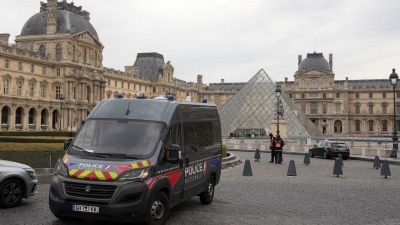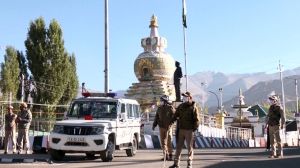Senate vote on nuclear deal likely next week
The Indo-US civilian nuclear bill might not come up for voting on Friday in the Senate as expected. The Jewish holiday of Rosh Hashanah falls on that day due to which a large number of Senators are likely to be absent.

The Indo-US civilian nuclear bill might not come up for voting on Friday in the Senate as expected. The Jewish holiday of Rosh Hashanah falls on that day due to which a large number of Senators are likely to be absent. The Senate, however, will begin discussions late in the evening on that day. Voting is likely to take place next week.
Earlier in the day, Defence Minister Pranab Mukherjee met US Secretary of State Condoleezza Rice in an effort to clear last-minute glitches over the nuclear deal that has been with the Senate for more than two months now. Accompanied by Foreign Secretary Shyam Saran, Mukherjee met Rice for about half an hour. Though details of the meetings were not available, a State Department official said the two leaders had a “good, constructive” meeting, indicating that any hurdle to the crucial nuke issue seemed to have been sorted out. “They covered a range of topics including US-India civil nuclear initiative, World Trade Organisation negotiation, the situation in Nepal and UN issues,” the State Department official said.
Delay in voting, sources said, was also partially attributed to the presence of the Pakistani President Pervez Musharraf in Capitol Hill, where he met the US President, George Bush. With Senate passing the nuke bill on the same day of his presence in Washington and meeting with Bush specially at a time when the Kashmir peace process has started again could have resulted in a little bit of upsetting the Pakistani ruler, who also has been insisting on a similar deal with US.
It is believed that Rice updated Mukherjee about the civilian nuclear issue, including the latest status in Senate. Officials said the good news is that the three Senators who had placed “hold” on the nuke bill have relented, thus, paving the way for the much awaited debate in the US Senate and the voting sometime early next week.
Saran, who had to rush to New York specially for the meeting with Rice, met the Senate Majority Leader Dr William Frist, Senate Minority Leader Harry Reid, Chairman of House International Relations Committee Henry Hyde among others.





- 01
- 02
- 03
- 04
- 05


























